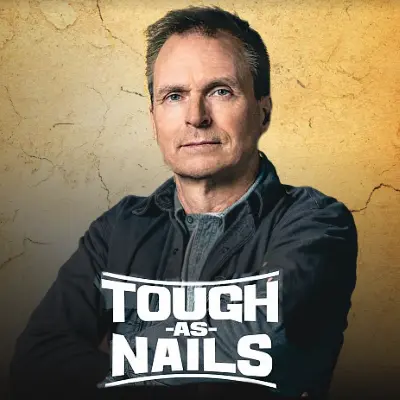CBS' Tough as Nails smacks of a class divide in patronizing blue-collar workers
-

"Today’s politics being what they are, it’s hard not to hear a reverse implication: that those of us who are not covered in sweat and grime by the end of the day are somehow making a dishonest living," Hank Stuever says of Phil Keoghan's new CBS reality show. "We might not even be real Americans. (Does this sweatstain metric also apply to the executive suite at networks? Does it apply to New Zealand-born TV hosts? Is Tough as Nails, like Undercover Boss before it, an exercise in subconscious remorse about one’s bloated paycheck?) The tone of the show, at best, patronizes the nation’s blue-collar workforce by overpraising it without addressing ongoing issues of wages and rights; at worst, it’s a glancing blow to all those Americans who work just as hard indoors, and have been working even harder since March, when pandemic isolation efforts required them to toil remotely at home while managing the full-time care and education of children. Keoghan and CBS have had plenty of weeks to look around, take note of the nation’s current mood and rewrite a lot of these vacuous voice-overs by recognizing the wide range of the American work ethic. Instead, Keoghan can’t stop piling on the class signifiers: These good folk, he says, are 'sweating on factory floors instead of gym floors, and wearing work boots instead of workout shoes.' Rather than seem tough, it seems insecure."
ALSO:
- Tough as Nails is CBS' best new reality show in years, but it's too patronizing: "I appreciate reality TV’s efforts to humanize people who are typically not given attention on prime-time TV, like those in less-visible, less-valued jobs," says Andy Dehnart. "That works best when a show just casts someone, like truck driver Sue Hawk on Survivor: Borneo, or profiles them, like on Discovery’s Dirty Jobs. It works least well when it’s used to artificially lock them into arbitrary categories, like Survivor Worlds Apart, which separated its cast into three tribes: white collar, blue collar, and 'no collar,' which should have been the first indication that these divisions were ridiculous. The divisions start to get ridiculous really quickly on Tough As Nails."
- Phil Keoghan says Tough as Nails celebrates America's working class: "We've seen how people respond to essential workers, people who put on PPEs and go right up to the front line and go into hospitals every day dealing with people who are sick," says Keoghan. "All of us look at those people working on the side of the road, or continuing to work because they have no choice, and I think we're more cognizant of the fact that they're a huge part of why you and I are able to stay inside and why the lights are on and the toilets flush and things function. It's because of those people that make the country work, make the country function. So we're trying to drill in on that. If there's any silver lining to Tough as Nails coming out now, it's the fact that we are more aware than we've ever been in terms of acknowledging those people who keep the country running."
- Bricklayer Callie Cattell recalls a persistent Tough as Nails casting person who "hit me up on Instagram"
- Tough as Nails challenges take place at actual job sites, and are inspired by the work that takes place there
TOPICS: Tough as Nails, CBS, Phil Keoghan, Reality TV
More Tough as Nails on Primetimer:
